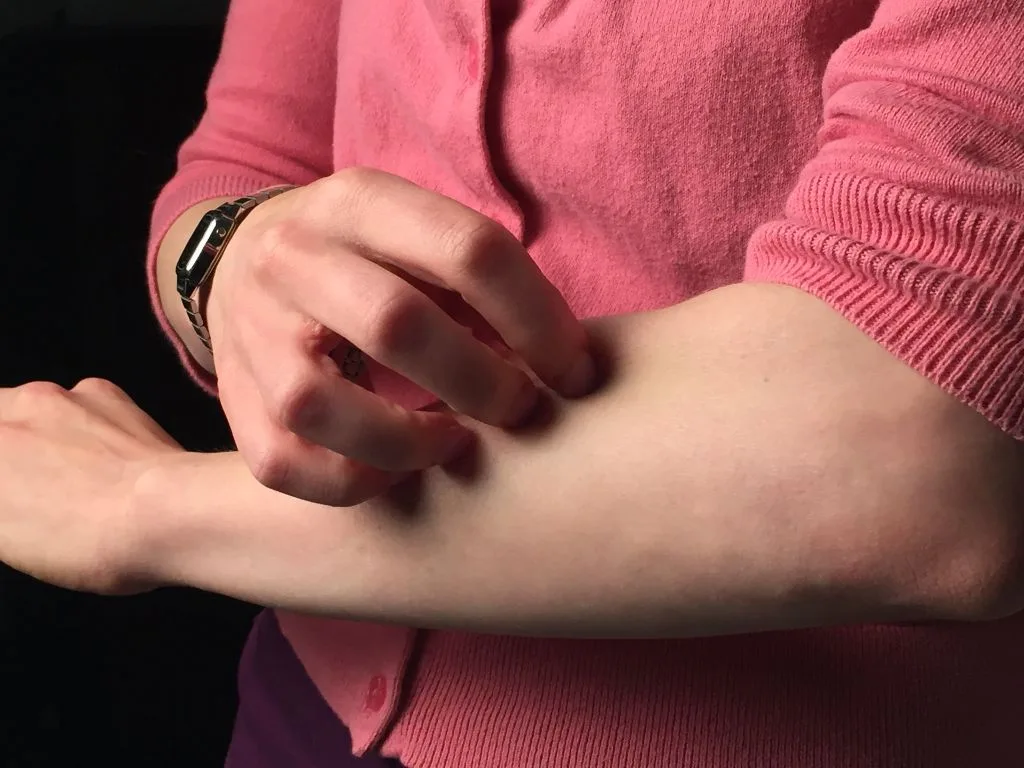The 14th of September is World Atopic Eczema Day – an annual event that raises awareness around a common skin disease that can impact sufferers – both physically and psychologically.
Atopic eczema is an inflammatory skin condition that causes chronic itchiness, dry skin, rashes, scaly patches, blisters, and skin infections. It is one of the most prevalent skin disorders – globally, it affects up to 20% of all children and 10% of adults.
According to the Allergy Foundation of South Africa (AFSA), atopic eczema, which can begin during childhood, adolescence, or adulthood – and can range from mild to severe, tends to impact people with other allergies like hay fever and asthma.
This chronic disease impacts the quality of life for those who suffer from it, and we offer some insights and advice below.
What causes atopic eczema?
Atopic eczema results from an overactive immune system that causes the skin barrier to become dry and itchy. When an irritant or an allergen “switches on” the immune system, it produces inflammation on the surface of the skin. This inflammation causes symptoms common to most types of eczema.
While the exact cause is unknown, people who develop eczema do so because of an interaction between genes and environmental triggers. Many people with eczema often also suffer from hay fever, allergic asthma, and food allergies.
What are the symptoms of atopic eczema?
- Itchy, dry, and sensitive skin that becomes inflamed and discolored
- Rough, leathery, or scaly skin, appearing as scaly patches
- Oozing or crusting
- Areas of swelling
Everyone’s eczema experience is different. You might have all these symptoms of eczema or only a few. You may experience some flare-ups that last for days, weeks, or months – or your symptoms could disappear entirely.
What can trigger an atopic eczema flare-up?
Along with having a family history of eczema, many common household items can cause allergic reactions, leading to an atopic eczema flare. Additional common triggers of eczema may include:
- Extended exposure to dry air, extreme heat, or cold
- Some types of soap, shampoos, bath products, body wash, facial cleansers and baby wipes
- Laundry detergents and fabric softeners with chemical additives
- Certain fabrics like wool or polyester in clothing and sheets
- Surface cleaners and disinfectants
- Fragrances in candles
- Metals (especially nickel) in jewelry or utensils
- Dust mites and living in dirty spaces
Some people’s eczema symptoms and flare-ups can get worse when they’re feeling stressed.
Is eczema contagious?
Eczema is not contagious. You can’t catch it from someone else.
How to treat eczema?
Proper, consistent skin care is essential in preventing and managing eczema. Moisturizers, antihistamines, topical steroid creams, and corticosteroids are among the potential courses of eczema treatments usually recommended by healthcare providers and dermatologists.
Why eczema is more than “just a skin condition”
People who suffer from eczema experience physical and emotional consequences that can impact their quality of life.
Children, in particular, don’t sleep well at night because of the itchiness and discomfort caused by eczema. As a result, they may not focus optimally at school and get the most out of their days.
The rash and subsequent skin infections from eczema can impact a person’s physical appearance, and children with visible eczema are frequently teased, bullied, and excluded from social groups.
Patients with this disease spend most of their lives requiring comprehensive daily care and management. Caring for a child with atopic eczema can affect personal relationships, decrease psychosocial functioning, cause sleep loss for family members, and a feeling of helplessness in dealing with the child’s daily suffering.
The burdens on children and youth living with atopic eczema – #ifyouonlyknew
This year, the Allergy Foundation of South Africa (AFSA), the International Alliance of Dermatology Patient Organizations (GlobalSkin) and the European Federation of Allergy and Airways Diseases Patients Associations (EFA) are raise awareness of the psychosocial burden on children and youth living with atopic eczema. The three organizations are calling for more empathy towards those who live with this condition.
“With World Atopic Eczema Day coming up on 14 September 2023, we are committed to raising awareness about this condition, advocating for improved treatments, and providing support to those living with eczema. Together, we can strive for a world where individuals with atopic eczema experience better skin health and a higher quality of life.” – Dr. Suretha Kannenberg, head of AFSA’s Atopic Eczema Support Group.



![women [longevity live]](https://longevitylive.com/wp-content/uploads/2020/01/photo-of-women-walking-down-the-street-1116984-100x100.jpg)










